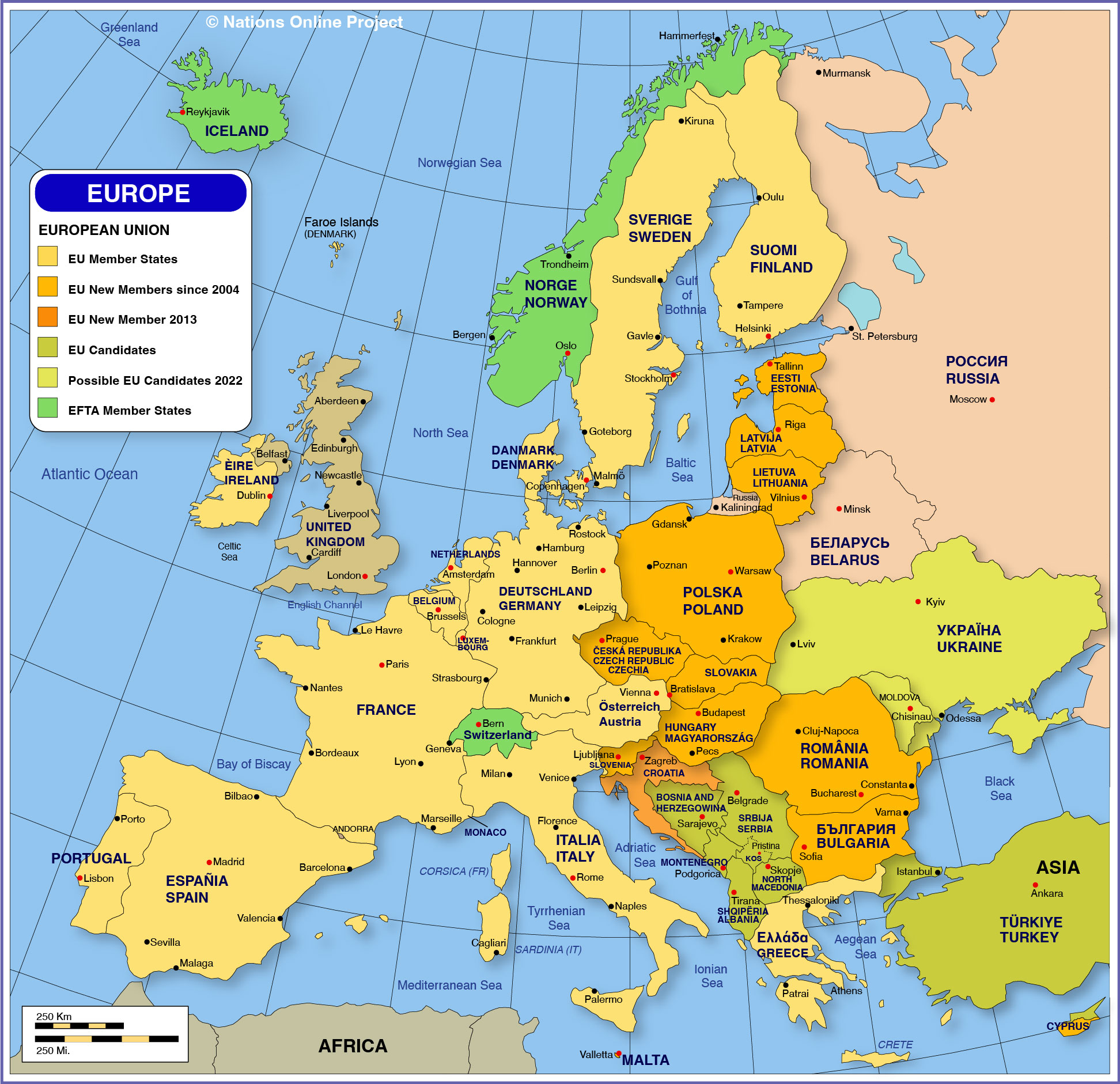
The Eternal Symphony: UCL Historical Facts in 2025
As we stand in 2025, the UEFA Champions League, football’s most prestigious club competition, continues to captivate billions worldwide. Its anthem, a modern-day call to arms, resonates through stadiums and living rooms, signifying the pinnacle of European club football. For nearly seven decades, this tournament, born as the European Champion Clubs’ Cup, has woven a rich tapestry of heroic tales, legendary figures, and unforgettable moments, shaping the very fabric of the global game.
Looking back from this vantage point in 2025, the UCL’s history isn’t just a collection of statistics; it’s a living narrative of evolution, ambition, and the relentless pursuit of greatness.
The Genesis: From European Cup to Champions League (1955-1992)
The tournament’s genesis in 1955 was a response to the growing desire for an international club competition, championed by French sports newspaper L’Équipe. What began as a simple knockout tournament for national champions quickly established itself as a battleground for the continent’s elite. The inaugural years were defined by the unparalleled dominance of Real Madrid, who clinched the first five titles consecutively from 1956 to 1960. Led by the iconic Alfredo Di Stéfano and Ferenc Puskás, this "White Ballet" set a benchmark of excellence that few have ever matched.
The 1960s saw the rise of other giants: Benfica, Inter Milan, and the first English winner, Manchester United, with their poignant victory in 1968, a decade after the Munich air disaster. The 1970s belonged largely to Dutch and German powerhouses, with Ajax’s "Total Football" under Johan Cruyff securing three titles (1971-1973) and Bayern Munich, spearheaded by Franz Beckenbauer, matching that feat (1974-1976).
By the late 1980s and early 1990s, the competition, while still revered, was due for a refresh. The desire for more matches between top teams and increased commercial potential led to a revolutionary change. In 1992, the European Cup was rebranded as the UEFA Champions League, introducing a group stage format that added layers of excitement, strategy, and financial incentive. This transformation marked the dawn of its modern era, cementing its status as a global sporting spectacle.
Dynasties and Dominators: The UCL Eras
Since the rebrand, the Champions League has witnessed several distinct periods of dominance, each leaving an indelible mark:
-
The AC Milan Masterclass (Late 80s – Early 90s): Even before the official UCL rebrand, Arrigo Sacchi’s AC Milan, with its legendary Dutch trio of Ruud Gullit, Marco van Basten, and Frank Rijkaard, redefined modern football. Their back-to-back triumphs in 1989 and 1990 (European Cup) showcased tactical brilliance, and they continued to be a formidable force in the early UCL years, winning again in 1994. Their defensive solidity and attacking flair set new standards.
-
Real Madrid’s Resurgence (Late 90s – Early 2000s): After a 32-year drought, Real Madrid reclaimed their throne, winning three titles in five seasons (1998, 2000, 2002). This era, featuring stars like Raúl, Roberto Carlos, and Zinedine Zidane’s iconic volley in the 2002 final, reaffirmed their unique relationship with the competition.
-
The Barcelona Blueprint (Mid-2000s – Early 2010s): Under Pep Guardiola, FC Barcelona’s tiki-taka philosophy revolutionized football. With Lionel Messi at its heart, supported by Xavi and Iniesta, they delivered two unforgettable triumphs in 2009 and 2011, playing a brand of fluid, possession-based football that was often deemed unplayable. Their 2006 and 2015 victories further cemented their place among the elite.
-
Real Madrid’s Unprecedented Treble (Mid-2010s): The most recent and arguably most astounding period of dominance came from Real Madrid once more, securing an unprecedented three consecutive titles from 2016 to 2018 under Zinedine Zidane. With Cristiano Ronaldo leading the line, supported by Luka Modrić and Sergio Ramos, they forged a legacy that many believe will stand for generations, eventually adding another title in 2022, bringing their record tally to 14 by the close of the 2023/24 season.
-
Bayern Munich’s Consistent Threat: While not always forming a multi-year dynasty, Bayern Munich has been a consistent European powerhouse, reaching numerous finals and winning titles in 2001, 2013, and 2020. Their blend of German efficiency, tactical discipline, and powerful players has made them a perennial contender.
-
Liverpool’s European Pedigree: Liverpool FC has always possessed a strong European identity. After their historical "Miracle of Istanbul" in 2005, they experienced a resurgence under Jürgen Klopp, reaching three finals in four years (2018, 2019, 2022) and winning in 2019, rekindling their glorious European nights.
Individual Brilliance: Legends Forged in Europe
The UCL stage has been the canvas for some of football’s greatest artists. As of 2025, several individual records stand as monuments to extraordinary talent:
- Goal-Scoring Supremacy: The incredible duopoly of Cristiano Ronaldo and Lionel Messi on the scoring charts remains unbroken. Ronaldo, with over 140 goals, and Messi, with over 120 goals, have pushed each other to unprecedented heights, setting benchmarks that may never be surpassed. Their individual battles and team triumphs defined an era.
- Most Appearances: Iker Casillas, Cristiano Ronaldo, and Lionel Messi lead the pack for most appearances, with veterans like Luka Modrić and Toni Kroos continuing to add to their tallies, showcasing remarkable longevity at the highest level.
- Iconic Moments: From Zinedine Zidane’s breathtaking volley in the 2002 final to Sergio Ramos’s dramatic injury-time equalizer in 2014, or Gareth Bale’s bicycle kick in 2018, individual brilliance has often swung the balance of the most critical matches. Goalkeepers like Iker Casillas and Gianluigi Buffon have made countless impossible saves, while defenders like Paolo Maldini and Sergio Ramos have defined their eras with a blend of skill and leadership.
Unforgettable Encounters and Dramatic Twists
Beyond the records, the Champions League is etched in memory for its sheer drama:
- The Miracle of Istanbul (2005): Liverpool’s comeback from 3-0 down at half-time against AC Milan to win on penalties is arguably the most famous final in history, a testament to resilience and belief.
- Manchester United’s Treble (1999): Two injury-time goals against Bayern Munich in Barcelona secured an unprecedented treble for Alex Ferguson’s side, a moment of pure footballing theatre.
- Barcelona’s Remontadas (2017): While they fell short of the trophy, Barcelona’s 6-1 comeback against PSG after a 4-0 first-leg defeat showcased the unpredictable nature of the tournament.
- Underdog Stories: While often dominated by giants, the UCL has seen its share of surprise winners and memorable runs. Porto’s triumph under José Mourinho in 2004 and Borussia Dortmund’s thrilling victory in 1997 against Juventus are reminders that on any given night, anything is possible.
The UCL’s Evolving Landscape in 2025
The Champions League has always adapted. The failed European Super League attempt in 2021 underscored the enduring power and appeal of the UEFA-sanctioned competition, with fans vehemently rejecting a closed-shop model. In response, UEFA has continued to evolve the format to maintain relevance and competitive integrity.
Indeed, the 2024/25 season marked a significant format overhaul, moving away from the traditional group stage to a single league phase (often dubbed the "Swiss Model"). This expansion to 36 teams and an increased number of matches aims to provide more high-stakes encounters between top clubs and boost commercial revenue further. As of 2025, this new format is bedding in, promising even more opportunities for historic moments and greater challenges for clubs vying for the coveted trophy. The financial disparities between clubs remain a contentious issue, but the sheer allure of the UCL remains a powerful equalizer on the pitch.
Conclusion
As the UEFA Champions League marches deeper into the 21st century, its legacy grows richer with each passing season. From the pioneering days of the European Cup to its current incarnation as a global phenomenon, it has consistently delivered unparalleled excitement, showcasing the best of club football.
In 2025, the tournament is more than just a competition; it is a pilgrimage for fans, a crucible for legends, and a stage where dreams are forged and shattered in equal measure. The historical facts are not merely records but chapters in an ongoing saga, reminding us that while the players and tactics may change, the relentless pursuit of European glory remains the UCL’s eternal symphony. The quest for the ultimate prize continues, promising many more decades of unforgettable footballing history.



